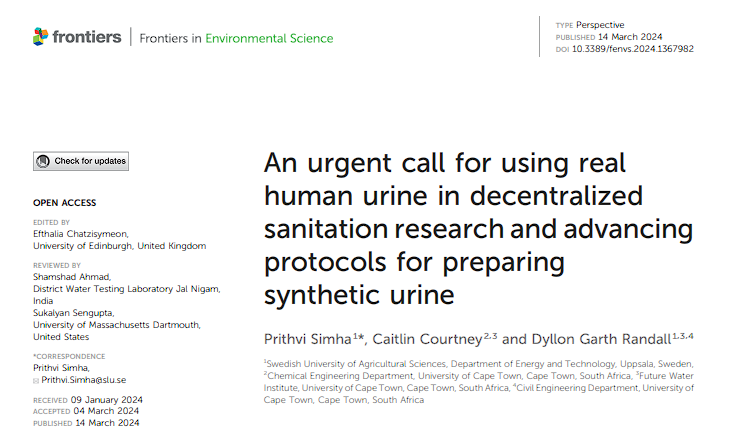
The choices we make matter. The choices we make as scientists can significantly impact society. In this perspective article published in Frontiers in Environmental Sciences, Caitlin Courtney, Dyllon Randall and I focus on one such methodological choice in decentralized sanitation research: whether to use real human urine or synthetic/artificial urine for experimentation.
For various reasons, many studies opt for synthetic urine over real human urine, relying on recipes for making synthetic solutions that mimic real urine. Using synthetic solutions as stand-ins for real fluids is a legitimate scientific method, and one that is not uncommon in wastewater research. But exclusively using synthetic urine can present methodological challenges, especially when protocols for its preparation are not well-established and validated against real urine. This article highlights some of the compositional and property differences between synthetic urine and real urine, and the implications of these differences on experimental outcomes and their real-life implications.
We hope this article sparks a dialogue within the research community on the benefits of using real urine in experimental research. We strongly encourage researchers involved in this field to collaborate in establishing standardized terminology, definitions, methodologies, and best practices for sanitation-related research involving human urine.
If you are interested in furthering this effort, please do reach out to us!
Simha, P., Courtney, C., & Randall, D. G. An urgent call for using real human urine in decentralized sanitation research and advancing protocols for preparing synthetic urine. Frontiers in Environmental Science, 12, 1367982.
